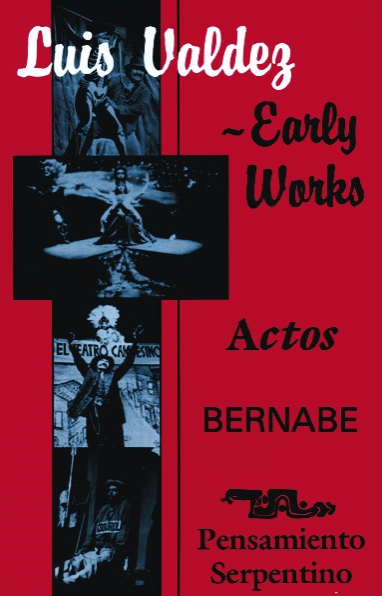ARTE PÚBLICO PRESS

“If you don’t do anything, nothing will happen.” Nancy De Los Santos Reza learned this important lesson early in life. College wasn’t an option, so she got a job as a secretary. A colleague, an older woman who had taken a liking to her, encouraged Nancy to ask her supervisor about attending a professional conference in California. “What’s the worst that could happen?” the woman asked. “They say ‘no’ and you don’t go? You’re already not going.” As a result, Nancy found herself in San Francisco on a life-changing trip. She would go on to earn two college degrees and become the producer of Roger Ebert and Gene Siskel’s movie review program, At the Movies.
De Los Santos Reza’s is one of eight inspiring personal essays by Latinas included in this collection. Each contributor overcame obstacles to happiness and success, and here they share their life lessons in the hopes of motivating others. Whether overcoming fear, guilt or low self-esteem, these women seek to encourage others to discover their personal power.
[cc_product sku=”978-1-55885-754-4″ display=”inline” quantity=”true” price=”true”]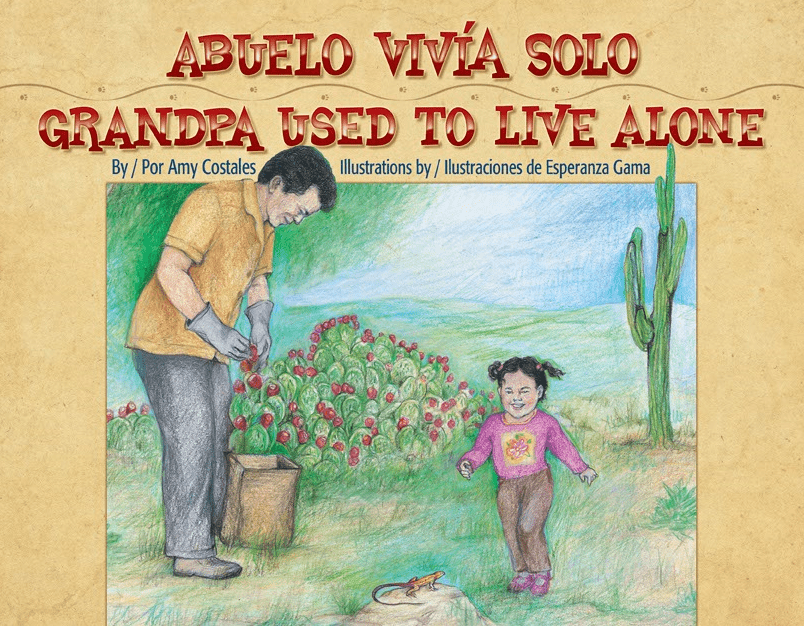
Grandpa used to live alone in a quiet pink house. But when his granddaughter was born, everything changed: “Mamá and I moved in. Grandpa’s house was still pink, but it was not so quiet anymore.” And Grandpa’s house and garden weren’t as orderly either. Sometimes Grandpa had to pick his way through toys strewn across the floor. Other days he watched her pluck rose buds and beans from his plants. And some days his brick patio was decorated with brightly colored chalk.
While she was a little girl and her mother went to school late in the evening, Grandpa made rice pudding. She would play with the measuring cups and eat raisins while he prepared their bedtime snack and told her stories. Then he would carry her upstairs to her crib and tuck her in. He would rock in the chair by her crib until she went to sleep.
As the years passed, she grew and grew. Grandpa took down her crib and bought her a bed. He taught her how to make rice pudding and play catch. And while she was growing, Grandpa was growing older too. Until all too soon, she was the one making the rice pudding and helping her grandfather up the stairs to bed. Amy Costales’ heart-warming text, accompanied by Esperanza Gama’s soothing illustrations, lovingly depicts the relationship between a child and a central figure in her life—her grandfather.
[cc_product sku=”978-1-55885-531-1″ display=”inline” quantity=”true” price=”true”]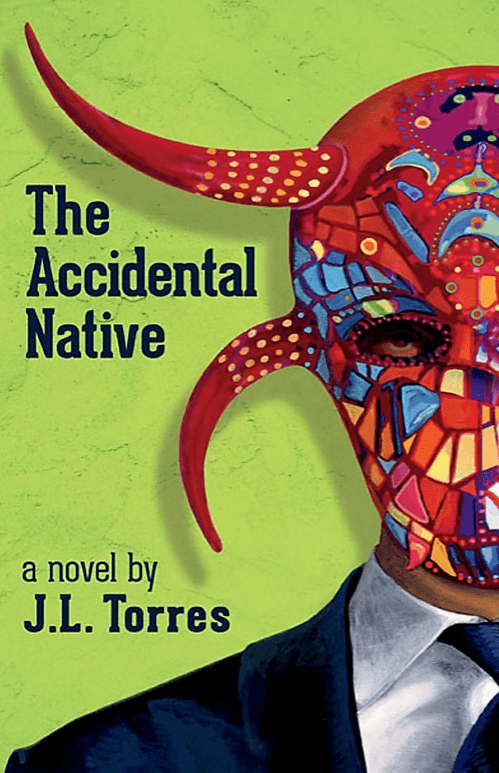
When Rennie’s parents die in a freak accident, he does what they would have wanted and buries them in Puerto Rico, their homeland. There, he’s shocked to discover that the woman who raised him was not his biological mother. A high-powered attorney, his birth mother Julia is determined to reclaim the son she gave up many years before.
Adrift, with no family in New York and haunted by memories, Rennie is swayed by Julia’s constant pleading that he move to the island. A teaching job at a college in Puerto Rico decides it, and he finds himself flying “home” to a place and culture he knows only through his parents’ recollections. Once there, he must deal with Julia’s strong-willed nature, a department chair not thrilled to have a Nuyorican on staff, squatters living in the house he inherited, students frequently on strike and a lover anxious to settle down. Most disturbing is the rumor that numerous faculty and staff are dying from cancer because the campus, a former U.S. military base, is full of buried munitions.
Rennie soon finds himself working to expose the government’s lies, though he risks losing his job, his home and even the woman he loves. In his debut novel, J.L. Torres captures the conflict and challenges experienced by Puerto Ricans returning to their “homeland.”
[cc_product sku=”978-1-55885-777-3″ display=”inline” quantity=”true” price=”true”]
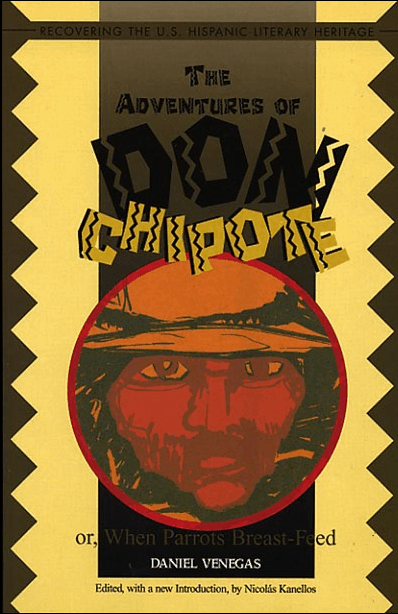
Originally published in 1928, and written by journalist Daniel Venegas, Don Chipote is an unknown classic of American literature, dealing with the phenomenon that has made this nation great: immigration. It is the bittersweet tale of a greenhorn who abandons his plot of land (and a shack full of children) in Mexico to come to the United States and sweep the gold up from the streets. Together with his faithful companions, a tramp named Pluticarpio and a dog called Suffering Hunger, Don Chipote (whose name means “bump on the head”) stumbles from one misadventure to another.
Along the way, we learn what the Southwest was like during the 1920s: how Mexican laborers were treated like beasts of burden, and how they became targets for every shyster and lowlife looking to make a quick buck. The author, himself a former immigrant laborer, spins his tale using the Chicano vernacular of that time. Full of folklore and local color, this is a must-read for scholars, students and those interested in the historical and economic roots—as well as with the humor—of the Southwestern Hispanic community. Ethriam Cash Brammer, a young poet and scholar, provides a faithful English translation, while Dr. Nicolás Kanellos offers an accessible, well-documented introduction to this important novel he discovered in 1984.
[cc_product sku=”978-1-55885-297-6″ display=”inline” quantity=”true” price=”true”]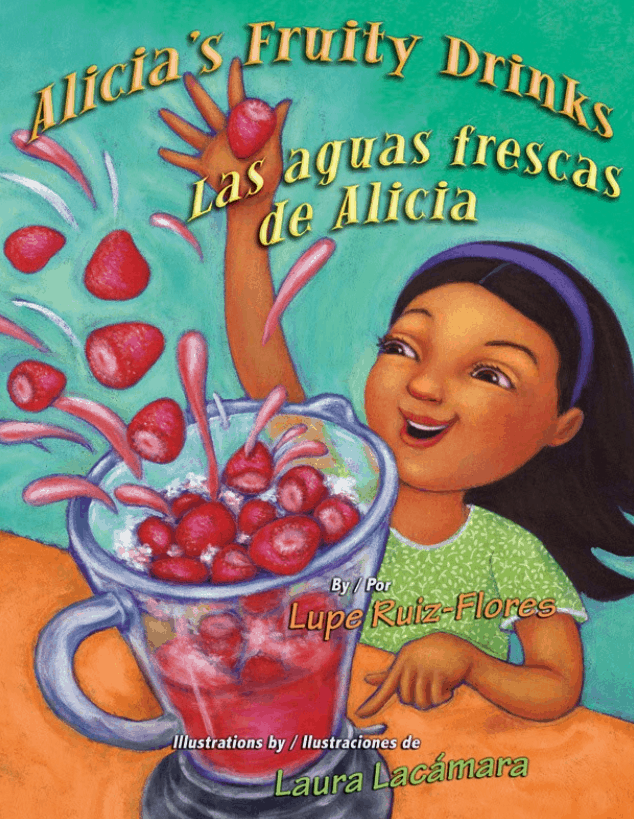
Seven-year-old Alicia and her parents are enjoying the annual festival celebrating Mexico’s independence. There are mariachis strolling across the festival grounds, folkloric dancers twirling in their colorful costumes and brightly colored booths lining the plaza.
But the hot day has made Alicia thirsty. Her mother suggests aguas frescas and points to a booth lined with jars of brightly colored fruit juice: there’s watermelon, strawberry, mango and even papaya. The watermelon juice is so delicious that Alicia drinks it all. “Mami, this tastes better than that red soda I drink after soccer practice. Can we make some of these at home?” Soon, Alicia is perfecting her own recipe and sharing it with her teammates after soccer practices and games.
In this bilingual picture book for children ages 5-8, a young girl discovers a treat from her mother’s Mexican-American childhood and becomes her friends’ favorite player with her healthy, frothy fruit drinks.
[cc_product sku=”978-1-55885-705-6″ display=”inline” quantity=”true” price=”true”]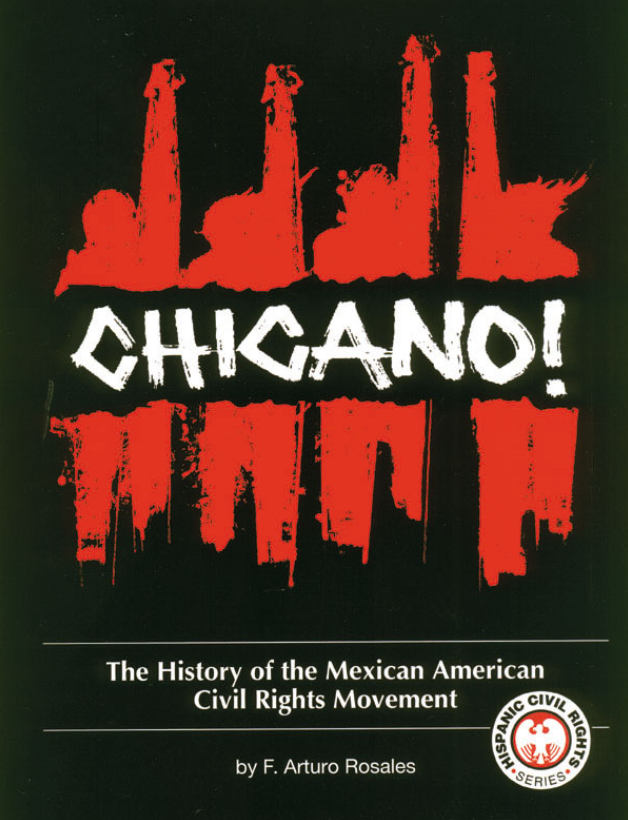 Chicano! The History of the Mexican American Civil Rights Movement is the most comprehensive account of the arduous struggle by Mexican Americans to secure and protect their civil rights. It is also a companion volume to the critically acclaimed, four-part documentary series of the same title. This volume is a testament to the Mexican American community’s hard-fought battle for social and legal equality as well as political and cultural identity.
Chicano! The History of the Mexican American Civil Rights Movement is the most comprehensive account of the arduous struggle by Mexican Americans to secure and protect their civil rights. It is also a companion volume to the critically acclaimed, four-part documentary series of the same title. This volume is a testament to the Mexican American community’s hard-fought battle for social and legal equality as well as political and cultural identity.
Since the United States-Mexico War in 1846-1848, Mexican Americans have striven to achieve full rights as citizens. From peaceful resistance and violent demonstrations, when their rights were ignored or abused, to the establishment of support organizations to carry on the struggle and the formation of labor unions to provide a united voice, the movement grew in strength and numbers. However, it was during the 1960s and 1970s that the campaign exploded into a nationwide groundswell of Mexican Americans laying claim, once and for all, to their civil rights and asserting their cultural heritage. They took a name that had been used disparagingly against them for years—Chicano—and fashioned it into a battle cry, a term of pride, affirmation and struggle.
[cc_product sku=”978-1-55885-201-3″ display=”inline” quantity=”true” price=”true”]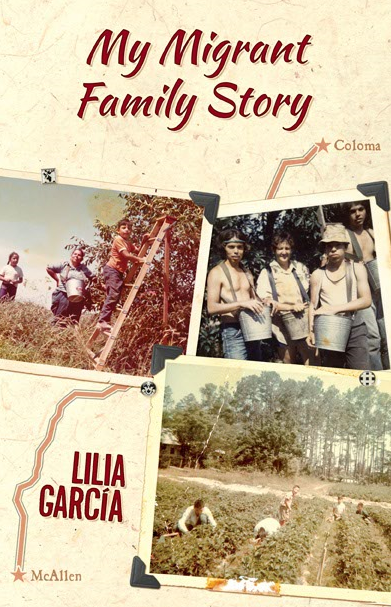 In this bilingual collection of short vignettes, García remembers her family’s life as migrant workers in the 1970s. Every year, they packed their red, Ford pick-up and left McAllen, Texas. The children’s excitement soon waned during the long drive through Texas, but grew as they passed the Gateway Arch in St. Louis and skyscrapers in Chicago. Finally, they arrived at their destination: the Ponderosa in Coloma, Michigan.
In this bilingual collection of short vignettes, García remembers her family’s life as migrant workers in the 1970s. Every year, they packed their red, Ford pick-up and left McAllen, Texas. The children’s excitement soon waned during the long drive through Texas, but grew as they passed the Gateway Arch in St. Louis and skyscrapers in Chicago. Finally, they arrived at their destination: the Ponderosa in Coloma, Michigan.
The family worked year in and year out for the same patrón, who allowed them to live in a house they called the Ponderosa, named for the big house in the TV show Bonanza. It was surrounded by fields full of fruits: an apple orchard lay to the east; a peach orchard was on the other side. There were strawberry patches, cherry trees and a grape vineyard.
García’s family worked long, back-breaking hours for a pittance, but they were together and their love for each other pulled them through. García was nine when her father found a full-time job in McAllen and their migrant life came to an end. “We missed the adventure of travel and sightseeing, but we didn’t miss the hard, back-breaking work.” Staying in one place allowed the kids to focus on school, ensuring that they never had to do that back-breaking work again. This is a heartfelt recollection of the life of migrant workers.
[cc_product sku=”978-1-55885-780-3″ display=”inline” quantity=”true” price=”true”]This collection includes one-act plays by the famous farmworker theater, El Teatro Campesino, and its director Luis Valdez; one of his first fully realized, full-length plays; and an original narrative poem.

